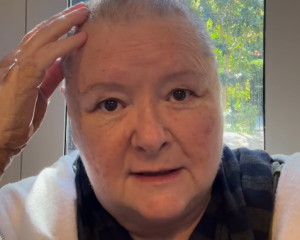Recently, someone with whom I am friends on Facebook posted a perplexing but amusing screenshot from her Amazon account. Amazon's algorithm, in its wisdom, had recommended she try reading Grover and the Everything in the Whole Wide World Museum, based on her indication that she had enjoyed Lolita.
Had the algorithm confused books for children with books about children?
Did it think my friend enjoyed books whose characters' names contain an "o''?
Is Grover and the Everything in the Whole Wide World Museum an extraordinarily misleadingly named book?
I do not know the answers.
No more do I know why Netflix recently presented, as one of its newest ``suggestions for [me]'', a show called 1000 Ways to Die. Boasting at the beginning of each episode that ``The stories portrayed in this show are based on real deaths and are extremely graphic'', 1000 Ways to Die does pretty much what it says on the tin, which is to recount horrible ways people supposedly have died with cheerfully unempathetic enthusiasm.
Precisely how closely the stories are based on real events is unclear, but the deaths are recreated by actors in all their gruesome detail while an action movie trailer-voiced narrator talks the viewer through the scenario, with liberal use of puns.
Each segment gives just enough back story to reassure the viewer that the deceased in question was unpleasant and/or foolish and got what they deserved.
In the first episode of season three we are told, among others, the tales of a Peeping Tom crushed by a falling bathtub, a trespassing swimmer disembowelled by a stray nail, and an intoxicated bride-to-be having a fatal high speed collision with a pigeon.
I am not making this up.
That's not to say, however, that the stories are not made up.
A cursory online search produces numerous suggestions that while the ways to die themselves are real and have happened, the characters and stories may be largely fabricated for entertainment value. The re-enactments are intercut with various doctors and other ``experts'' explaining the mechanics of each death, which gives a thin veneer of scientific legitimacy, but I'm inclined to take each narrative with several grains of salt.
Not that it really matters.
Fans of 1000 Ways to Die are not going to need their TV fully referenced and peer reviewed, they're just going to be in it for cheap thrills, and this show has them at their cheapest. This is exemplary trash TV, in the spirit of When Animals Attack Magicians or When Buildings Collapse. Alright, those are both fictional shows referenced on The Simpsons, but you get the idea.
Homer would probably watch this.
Thanks for the suggestion, Netflix. You can't win 'em all.












